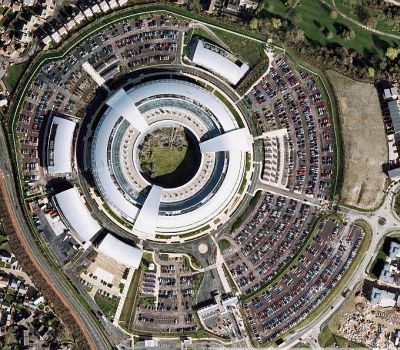

The information assurance (IA) arm of GCHQ has launched a new scheme to certify the quality of cyber security professionals in the UK.
GCHQ has been vocal about the cyber threat to the UK. GCHQ director Ian Lobban recently warned attacks had reached “unprecedented scale, diversity and complexity”, although onlookers have claimed GCHQ is talking up the danger to acquire more funding from central government.
Regardless of those claims, the Cheltenham-based intelligence agency wants to get hold of the necessary skills to protect the country’s infrastructure.
The CESG Certification for IA Professionals scheme is designed to help government and industry to employ the right people to help fend off the right security threats they face today.
Professionals will also benefit from CESG advice on how to progress their careers in the industry.
The certification launch forms part of the UK Cyber Security Strategy, which is seeking to bolster the nation’s defences against Internet-based threats, from criminal attacks to nation-state sponsored campaigns.
Three independent certification bodies, including the APM Group, the IISP, RHUL & CREST consortium and BCC – the Chartered Institute of IT, have been tasked with running the scheme.
The roles assessed include IA accreditor, IA auditor, communications security officer, IT security officer, security and information risk advisor and security architect.
“Cyber security and information assurance expertise is at the heart of protecting the UK from cyber attack and I am delighted that GCHQ’s scheme to certify IA professionals in both the public and private sectors is fully up and running,” said Jonathan Hoyle, GCHQ’s director general for government and industry cyber security.
“I believe passionately that upping the level of cyber security competence in the UK is hugely important and the implementation of the certification scheme is key,” added Chris Ensor, deputy director for the national technical authority for IA at CESG.
Education and certification are proving key in the government cyber sphere, as many believe the public and private sectors have failed to get people interested in security.
A security skills gap has now emerged in the UK and elsewhere, but government is attempting to plug it with various schemes, such as the Cyber Security Challenge, which rewards winners with educational grants and internships at major companies.
GCHQ is helping run the Balancing the Defence game within the Challenge, which tasks players with analysing a mocked-up network similar to those typically found in government and protect it from attacks from hostile states, organised criminal gangs or individual hackers.
How well do you know Internet security? Try our quiz and find out!
All Cybertrucks manufactured between November 2023 and February 2025 recalled over trim that can fall…
As Musk guts US federal agencies, SEC issues summons over Elon's failure to disclose ownership…
Moonshot project Taara spun out of Google, uses lasers and not satellites to provide internet…
Pebble creator launches two new PebbleOS-based smartwatches with 30-day battery life, e-ink screens after OS…
Amazon loses appeal in Luxembourg's administrative court over 746m euro GDPR fine related to use…
Nvidia, xAI to participate in project backed by BlackRock, Microsoft to invest $100bn in AI…
View Comments
Accreditation is important for any profession so this scheme can only be a good thing in the sense of making sure that those who say they can actually can. And to come from GCHQ gives it the necessary credibility. The lack of information security professionals is biting in all parts of the world though ( http://ow.ly/eJ845 ) and will there even be enough people to apply to the scheme? I think the Cyber Security Challenge will be more telling in making sure that the number of personnel in the industry are there. You can't distinguish the creme de la creme if there isn't enough creme in the first place!